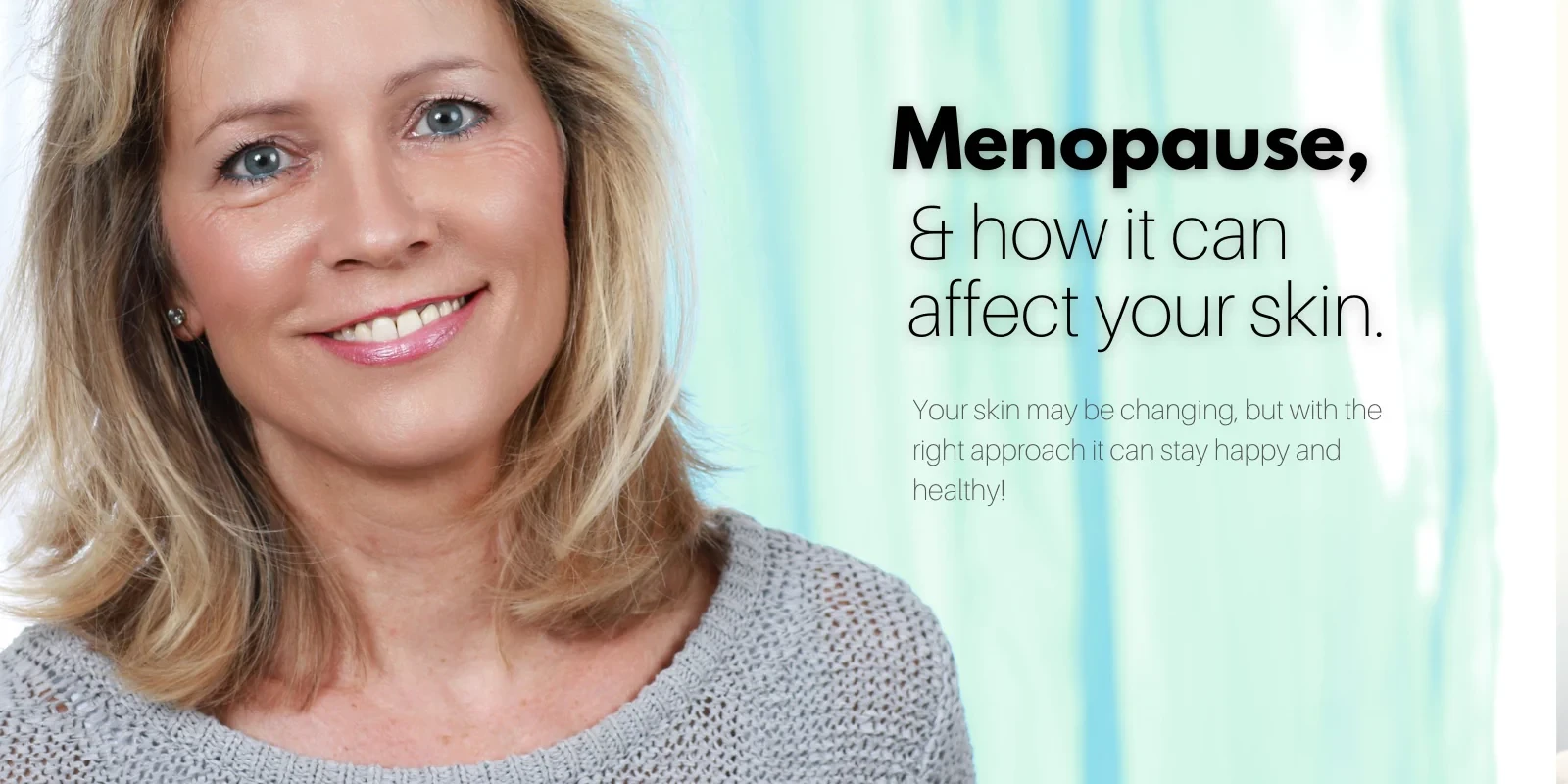How does menopause affect the skin?
How Does Menopause Affect the Skin?
Menopause marks a significant hormonal shift in a woman’s life, typically occurring between the ages of 45 and 55. While it brings many physical and emotional changes, one of the most visible is the impact on skin health. These changes are largely driven by a sharp decline in estrogen levels, which play a crucial role in keeping skin youthful, hydrated, and resilient. Understanding how menopause affects the skin can help you adapt your skincare routine to maintain radiance, comfort, and health.
1. Loss of Collagen and Elasticity
Estrogen supports collagen production, the protein that keeps skin firm, plump, and smooth. During the first five years of menopause, women can lose up to 30% of their skin’s collagen. This loss leads to:
-
Thinner skin
-
Increased sagging
-
Deeper wrinkles and fine lines
Solution: Use skincare products with collagen-boosting ingredients like retinoids, peptides, and vitamin C. Consider professional treatments like microneedling or laser therapy for more advanced collagen stimulation.
2. Dryness and Dehydration
Estrogen also helps maintain the skin’s natural moisture by supporting oil production and strengthening the skin barrier. With menopause, skin may become:
-
Rough or flaky
-
Tight or itchy
-
More sensitive to weather and skincare products
Solution: Switch to richer moisturizers containing hyaluronic acid, ceramides, glycerin, and squalane. Avoid harsh soaps and incorporate hydrating serums or facial oils into your routine.
3. Increased Sensitivity and Irritation
As the skin barrier weakens, menopausal skin becomes more prone to redness, sensitivity, and irritation. Pre-existing skin conditions like rosacea or eczema may also worsen.
Solution: Choose fragrance-free, gentle formulations. Look for calming ingredients like aloe vera, niacinamide, and green tea extract. Always patch-test new products.
4. Changes in Pigmentation
Hormonal fluctuations can cause uneven skin tone or age spots (also known as liver spots). Some women may also see lingering melasma (dark patches) from earlier pregnancies worsen.
Solution: Apply broad-spectrum sunscreen with SPF 30 or higher daily. Incorporate brightening ingredients such as vitamin C, licorice extract, or azelaic acid into your skincare routine.
5. Slower Skin Renewal
The skin’s natural renewal process slows down, leading to dullness and uneven texture. Cell turnover declines, making skin look less radiant.
Solution: Gentle exfoliation 1–2 times a week with alpha hydroxy acids (like lactic acid or glycolic acid) can help slough off dead skin and boost glow. Avoid harsh scrubs that can damage mature skin.
6. Facial Hair Growth
Some women notice increased facial hair, especially on the chin or upper lip, due to the imbalance of estrogen and androgens.
Solution: Hair removal methods such as dermaplaning, waxing, or laser treatments can manage unwanted growth safely.
Conclusion
Menopause can significantly impact the skin’s appearance and texture, but with the right care, you can navigate these changes gracefully. Focus on hydration, collagen support, sun protection, and barrier repair. A skincare routine tailored to your evolving needs—along with a healthy diet, hydration, and stress management—can help you maintain vibrant, comfortable skin well into your next chapter.

Related Blog
What Causes Oily Skin and Can It Be Managed Naturally? Exploring Root Causes and Gentle Solutions
Aug 2, 2025 by Admin
General
What Are the Signs That You Have Sensitive Skin? Key Symptoms to Help You Identify This Delicate Skin Type
Aug 1, 2025 by Admin
General